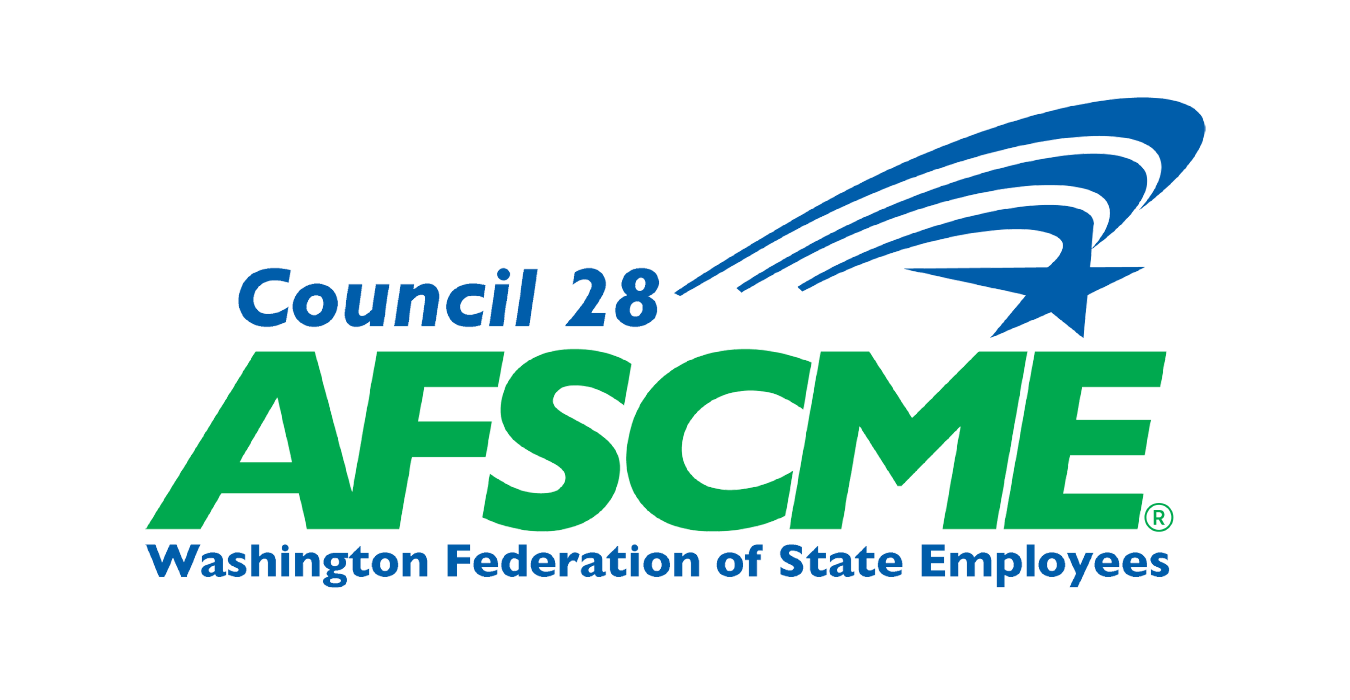This is the Federation Hotline updated Feb. 19.
Senate first out of gate with supplemental budget proposal
The Senate Democratic majority on Monday (Feb. 19) released its proposed supplemental budget – the off-year budget that tweaks the major two-year operating budget adopted last year.
The House plan is expected tomorrow.
Overall, the Senate plan (SB 6032) appears to use increased revenue to help people. We’ll scour it for the pluses and minuses and outline them at the Senate Ways and Means Committee hearing scheduled for Tuesday afternoon. We’ll do the same at the House Appropriations Committee on the House supplemental budget proposal coming out Tuesday (Feb. 20).
The Senate plan commits to fund services for vulnerable citizens and neglected and abused children.
It includes more beds in mental health and for clients in state residential habilitation centers (RHCs) who want to move into State Operated Living Alternatives (SOLA) facilities staffed by AFSCME Council 28 (WFSE) members.
Some other top lines in the Senate supplemental budget proposal: in Higher Education, funds would be increased for the state needs grant for students; adds increases in the new Department of Children, Youth and Families; expands work release capacity in the Department of Corrections; provides funding for one-time backfills for three Veterans Department facilities in Retsil, Orting and Walla Walla; covers fire suppression and response in the Department of Natural Resources; addresses emergency management and disaster relief; and funds a one-time benefit increase for PERS 1 retirees.
We’ll take a close look at concurrent sentencing proposals that might cause job cuts in Community Corrections. And as always we’ll scrutinize funding of our health benefits.
Details online: http://leap.leg.wa.gov/leap/budget/detail/2018/so2018p.asp
More to come at tomorrow’s budget hearings.
This Presidents’ Day Lobby Day brings sea of AFSCME Green to the Capitol
Today is Presidents’ Day Lobby Day and dozens of WFSE/AFSCME Council 28 members came from around the state to tell their stories and urge passage of our priority legislative agenda. These member lobbyists’ actions today will have a big impact. Why? There are less than three weeks left in this session. But remember that every day is Lobby Day; sign up at https://wfse.org/lobby-days.
On this Presidents’ Day Lobby Day, calls needed on Interpreter Services Bill
Our priority bill to build on the current successful interpreter services system got its first hearing in the House Monday, on this the Federation’s Presidents’ Day Lobby Day. But House members need to hear from us on this issue.
The Interpreter Services Bill (2SSB 6245) would expand the successful system that members of Interpreters United Local 1671 have used to save money, improve services and better compensate medical interpreters.
The measure would allow the same system under other agencies, like Labor and Industries.
As in the past, the bill generated some opposition but proponents led by bill sponsor Sen. Rebecca Saldana of the 37th Dist. easily defused them in the hearing in the House Labor and Workplace Standards Committee.
“This bill makes our procurement process more cost-efficient and effective, lowering costs for taxpayers – increasing pay for interpreters,” said Dennis Eagle, WFSE/AFSCME legislative and political action director.
“It’s a win-win.”
The current system works and Local 1671 members can tell why first-hand.
“With this bill...we can use technology to procure better-compensated interpreters, collect data and save millions for the taxpayers,” said Aida Sanchez-Vela, WFSE/AFSCME Interpreters United Local 1671.
CALL TO ACTION: Call your House member at 1-800-562-6000 and urge passage of 2SSB 6245 to expand the successful HCA procurement model and bring change for more cost-effective interpreter services to Labor and Industries and other agencies.
How one DOC member’s story moved his legislator to action
The sponsor of the good bill (HB 2611) that already unanimously passed the House said the idea of protecting the integrity of post-incident counseling and peer support came from a new awareness brought to him by one of his constituents.
Rep. Andrew Barkis of the 2nd Dist. said John Tulloch, a Community Corrections specialist and member of Local 443, told him that the dangerous work he and his colleagues do often involves “critical incidents” that may involve use of force.
“I was very surprised,” Barkis told the Senate Law and Justice Committee Monday (Feb. 19). “I had no idea.”
Barkis said he was also surprised to learn that unlike other law enforcement professionals, Tulloch and his colleagues don’t enjoy the same kind of privileged communications, like the attorney-client privilege.
That made them “very skeptical” when talking to peer support counselors.
Barkis praised Tulloch for doing what citizens should do when they see something as important as this that should be changed for the good: Calling on legislators to listen and act.
Tulloch as he did in the House hearing explained to the Senate committee that DOC staff are still held to the same standard as other law enforcement professionals.
“We should be able to talk to a counselor as soon as possible and those statements should be protected,” Tulloch said.
Law enforcement professionals in other agencies, including Parks and the Liquor and Cannabis Board, also face the same lack of privileged communications for peer support counseling.
“Peer support by its very nature is comforting and provides a person with a person who understands what they are going through and allows them to validate and support that person,” said Ton Johnson, the Federation’s law enforcement labor advocate. “That’s critical in ensuring that staff feel protected.”
The committee has set a vote on HB 2611 for Thursday (Feb. 22).
Also Monday:
The Senate Ways and Means Committee voted out our priority bill (SHB 1559) to grant binding interest arbitration rights to campus police.
That’s it for now.
###
